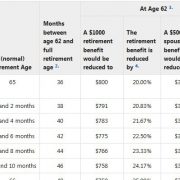Early Retirement Health Insurance Options Before Medicare Kicks In
One of the most critical considerations for those planning an early retirement is securing health insurance until they become eligible for Medicare at age 65. Navigating this transition can be complex, as the need for continued coverage before Medicare kicks in requires understanding various options, from employer-sponsored plans to private insurance. This article will explore five key options for health insurance coverage during the gap before Medicare eligibility.
1. Employee-Sponsored Plans
If you’re leaving a job but not yet ready to retire fully, one option may be to stay on your employer’s insurance plan. Many employers offer health coverage to retirees or employees who leave the company under certain conditions.
- Retiree Health Insurance: Some employers, particularly large companies or unions, offer retiree health plans as a benefit. While this is becoming less common, these plans often mirror the coverage offered to active employees, though premiums may be higher.
- Eligibility: To qualify, you typically need to have worked for the company for a specific number of years. Some employers may also offer retiree health insurance for spouses or dependents.
- Cost: While more affordable than private plans, premiums can still be substantial, especially if the employer’s contribution decreases after retirement.
Things to Consider
- Premiums: Expect to pay higher premiums compared to when you were actively employed.
- Plan Limitations: Coverage may differ from what was available to you as an active employee. Be sure to review any changes in benefits, out-of-pocket costs, and provider networks.
2. Coverage Extension Through COBRA
The Consolidated Omnibus Budget Reconciliation Act (COBRA) provides a temporary option for those who lose health insurance coverage after leaving their job. Under COBRA, you can maintain the same coverage you had while employed for up to 18 months.
- Eligibility: You are eligible if your employer had 20 or more employees and you were enrolled in their health plan at the time of job separation.
- Coverage: Under COBRA, you keep your existing coverage, including limited access to the same doctors, hospitals, and medical services.
- Cost: You will be responsible for the entire premium, which includes both your share and the employer’s portion, plus a 2% administrative fee. This can make COBRA premiums significantly more expensive than what you paid while employed.
Things to Consider
- High Premiums: COBRA ensures no gap in coverage, but the cost can be prohibitive for early retirees.
- Short-Term Solution: COBRA only provides coverage for 18 months, which may not be enough for those retiring before age 65.
3. Private Plans
If neither employer-sponsored plans nor COBRA are viable options, private insurance becomes an important consideration. The individual marketplace provides a range of options, including health plans through the Affordable Care Act (ACA).
- Affordable Care Act (ACA) Plans: Through the ACA, individuals can purchase health insurance through state or federal exchanges. Plans are available in different tiers—Bronze, Silver, Gold, and Platinum—each offering varying levels of coverage and cost-sharing.
- Premiums and Subsidies: If your income falls below a certain threshold, you may qualify for subsidies to help lower the monthly premium.
- Private Insurers: Many private insurance companies offer policies outside the marketplace in addition to ACA plans. These plans may provide more flexibility but could be more expensive and lack the same protections as ACA policies.
Things to Consider
- Customization: Private plans often offer a wider variety of options, but finding the best plan for your needs requires careful comparison.
- Subsidy Eligibility: Depending on your income, you may qualify for subsidies that can significantly reduce the cost of premiums.
4. High-Deductible Plan Tied to HSA
A high-deductible health plan (HDHP) combined with a Health Savings Account (HSA) can be a cost-effective option for healthy retirees who want to lower their premiums while saving for medical expenses.
- High-Deductible Health Plan: These plans typically have lower premiums but higher deductibles than traditional health plans. While you’ll pay more out-of-pocket before your insurance kicks in, the monthly premiums are more affordable.
- Health Savings Account: An HSA allows you to set aside pre-tax dollars to cover medical expenses, including deductibles, copays, and some insurance premiums. Contributions to an HSA are tax-deductible, and funds grow tax-free, making it a powerful savings tool.
Things to Consider
- Risk vs. Reward: The higher deductible means you may pay more out-of-pocket before coverage kicks in. However, the tax advantages of an HSA can help mitigate some of these costs over time.
- Eligibility: To qualify for an HSA, you must be enrolled in an HDHP. Not all early retirees may meet this criterion.
5. Strategic Long-Term Planning
Managing your health insurance needs before Medicare requires a thoughtful, long-term strategy. Planning can help you bridge the gap, avoid coverage lapses, and minimize costs.
- Timing Your Retirement: One way to minimize health insurance gaps is to time your retirement to align with your Medicare eligibility. Retiring close to age 65 can allow you to transition seamlessly to Medicare without a lengthy coverage gap.
- Bridge Options: Some retirees use bridge insurance or short-term health plans to cover the period between retirement and Medicare eligibility. These plans are temporary and often have limited coverage.
- Retirement Accounts: Assess your retirement savings (401(k), IRA) to ensure you have enough set aside to cover health insurance premiums and out-of-pocket medical costs until you’re eligible for Medicare.
Things to Consider
- Comprehensive Strategy: Don’t wait until retirement to make health insurance decisions. Start exploring options early and consult with a financial advisor to ensure a solid plan.
- Health Care Needs: Your health needs will evolve, so choose a flexible health insurance plan that can adapt as your situation changes.
Bottom Line
Navigating health insurance before you’re eligible for Medicare can be a daunting task, but understanding your options and planning can make the process easier. Whether you rely on employer-sponsored plans, COBRA, private insurance, or a high-deductible plan with an HSA, each option has its pros and cons. A thoughtful, well-researched strategy will help ensure you stay covered and financially secure as you transition into retirement.
By considering these options and taking proactive steps, you can bridge the gap to Medicare and ensure continuous, affordable health coverage during your early retirement years.
Planning for a secure retirement goes beyond health insurance. At Horizon Wealth Management, we specialize in helping individuals like you navigate complex financial decisions, from managing retirement accounts to planning for healthcare costs. Our team can help you create a comprehensive strategy to achieve your financial goals so that you can retire with confidence and peace of mind. Contact us to learn more about how we can support your retirement planning journey.











